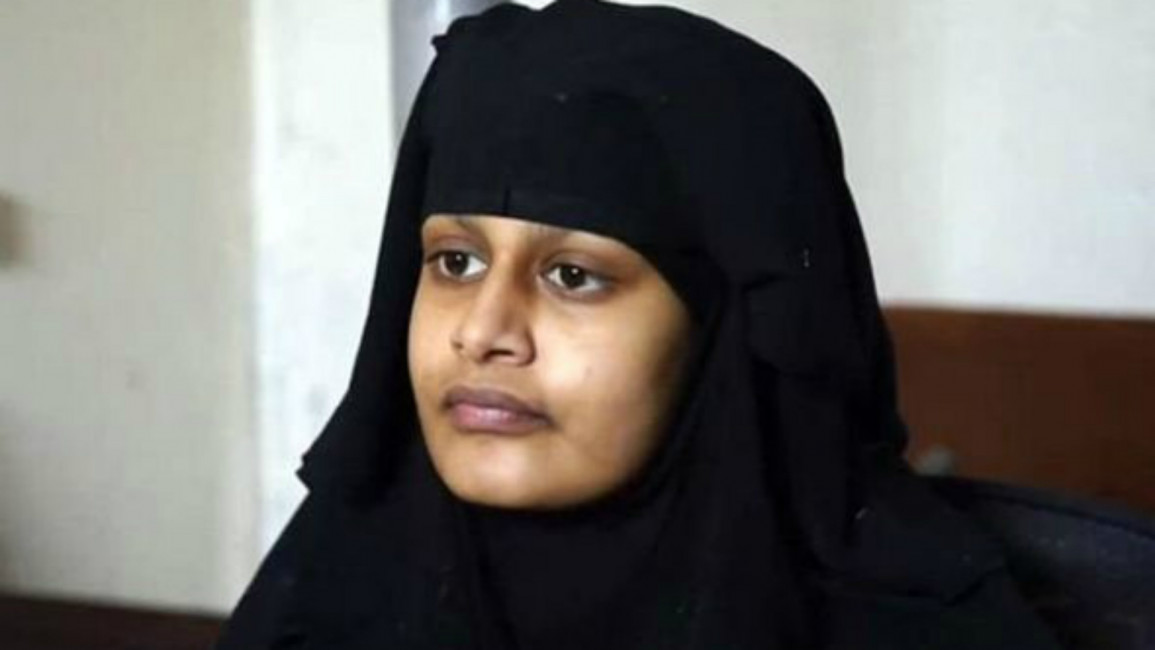SDF confirms British IS teen's baby son dies in Syria
The British government drew fresh criticism Saturday over its decision to revoke citizenship from a London teenager who joined the Islamic State group in Syria, after her baby died in a refugee camp.
Shamima Begum, 19, had asked to return home after giving birth to her son Jarrah last month in the camp in northeastern Syria, but London refused.
A spokesman for the US-backed Syrian Democratic Forces, Mustefa Bali, told AFP the baby had died, without giving further details.
The BBC said he had pneumonia, citing a medical certificate.
Begum's fate has sparked heated debate in Britain, which like many other countries is facing a dilemma over whether to allow jihadists and IS sympathisers home to face prosecution, or stop them from returning at all.
She was 15 when she left east London for Syria with two other schoolgirls, and was found by journalists in the refugee camp after fleeing fighting between the terror group and US-backed forces.
Begum told them she wanted to return home to save her baby, saying that her two older children had died, apparently from illness and malnutrition.
"I don't want to lose this baby as well and this is really not a place to raise children, this camp," she told the BBC at the time.
Opposition Labour MP Diane Abbott said the death of the baby was "a stain on the conscience of this government".
She accused Interior Minister Sajid Javid of revoking Begum's citizenship "to appease the right-wing press", adding that he had "failed this British child, and he has a lot to answer for".
A British government spokesman said: "The death of any child is tragic and deeply distressing for the family."
But he added that Britons had been warned since 2011 not to travel to Syria because of the conflict there.
"The government will continue to do whatever we can to prevent people from being drawn into terrorism and travelling to dangerous conflict zones," he said.
'Take responsibility'
Begum initially showed little remorse about IS attacks, sparking public outrage in Britain.
But Javid's decision to revoke her citizenship, deeming her a security risk, drew mixed reactions.
British law states that the government cannot remove a person's citizenship if that would make them stateless, unless there are "reasonable grounds" to believe they can become a citizen of another country.
It was reported that Begum could be eligible for Bangladeshi citizenship through her parents, but Dhaka said there was "no question" of her going there.
Javid had hinted that her baby could be treated differently, telling MPs previously: "Children should not suffer, so if a parent does lose their British citizenship it does not affect the rights of their child."
But he said it would be "incredibly difficult" to bring the child back from Syria, where Britain has no consular presence.
Abbott said: "To leave a vulnerable young woman and an innocent child in a refugee camp, where we know infant mortality to be high, is morally reprehensible."
Aid group Save the Children said the baby's death was "incredibly sad" and urged Britain and other countries to "take responsibility" for their citizens in Syria.
"It is possible the death of this baby boy and others could have been avoided," said the group's Syria response director, Sonia Khush.
"All children associated with (IS) are victims of the conflict and must be treated as such."
A mass exodus from the jihadists' last redoubt in eastern Syria has sparked a humanitarian emergency, as the SDF leads an offensive to smash the last remnants of the IS territory.
The International Rescue Committee on Friday said that 12,000 women and children had arrived at the Kurdish-run Al-Hol camp since Wednesday.
Since December, at least 100 people have died en route to the camp or shortly after arriving, mostly children under five, the IRC said.



